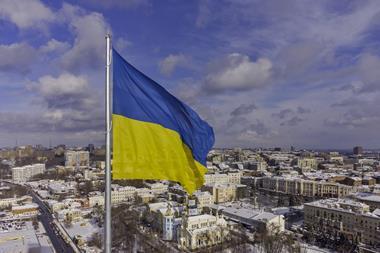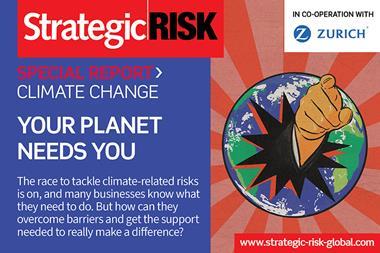Conflict between Russia and Ukraine is a stark reminder of how quickly geopolitical risks can escalate - Marsh
Rising competition for supremacy over soil, sea, and space will fuel future global geopolitical tensions as nations seek to stake their claims on sea-based borders, previously untapped mineral resources, and the all-but-unregulated cosmos according to a new report from Marsh.
While land borders between countries remain key delineators of political risk – as exemplified by the current Russia/Ukraine conflict – competition for ocean territory, minerals, and space will increasingly influence interstate relations, it warns.
“The conflict between Russia and Ukraine is a stark reminder of how quickly geopolitical risks can escalate and have a terrible local humanitarian impact as well as affect businesses and investors around the world,” said Nick Robson, Head of Credit Specialties, Marsh Specialty.
“The appalling consequences of this conflict on the Ukrainian people will remain at the centre of our thoughts for the foreseeable future.
”However, this is also a moment for businesses and investors to consider how developments in the environments of sea, space, and soil could influence future geopolitical tensions between countries and regions.
”We are working with clients to help understand the potential impact of current and emerging political risks, together with the need for strategic risk and insurance plans, which will enable them to be more resilient to future political and economic crises.”
Competition for critical resources
With more than 80% of the sea depths unexplored, there remains immense potential for exploration and investment to meet the growing demand for food and raw materials.
However, this ‘blue exploration’ raises the risk of heightened geopolitical tension given that the broader challenge of climate-related risk is significantly dependent upon our care of the oceans and most potential resources are located in exclusive economic zones (EEZs), which cover territorial rights offshore that may be contested, especially where they overlap.
Demand and competition for strategic minerals such as cobalt, copper, lithium, manganese, thorium, titanium, uranium, and vanadium, which are crucial to the energy transition, will also shape future geopolitical risk, the report notes.
With just a small number of countries, often with autocratic systems of government, producing these minerals, alternatives such as mining the sea bed are increasingly being investigated.
However, this exploration could cause irreversible damage to underwater ecosystems and further disrupt already fragile global food and supply chains.
The growth in the space economy, when combined with the increased militarization of space, could also risk an escalation of geopolitical tensions. This could be further exacerbated if there is a failure to collaborate on a robust governance framework as more countries turn to space for intelligence gathering, navigation, and military communications.
Within the next decade, the low Earth orbit could host 100,000 satellites, leading to an increase in orbital debris.
The impact of even a small piece of space junk, Marsh notes, could seriously damage orbiting equipment and risk triggering conflict.
“Understanding these challenges and building them in to risk and insurance planning will make business more resilient, and help to secure growth, even as we adapt to our changed geopolitical realities,” Robson added.




















No comments yet